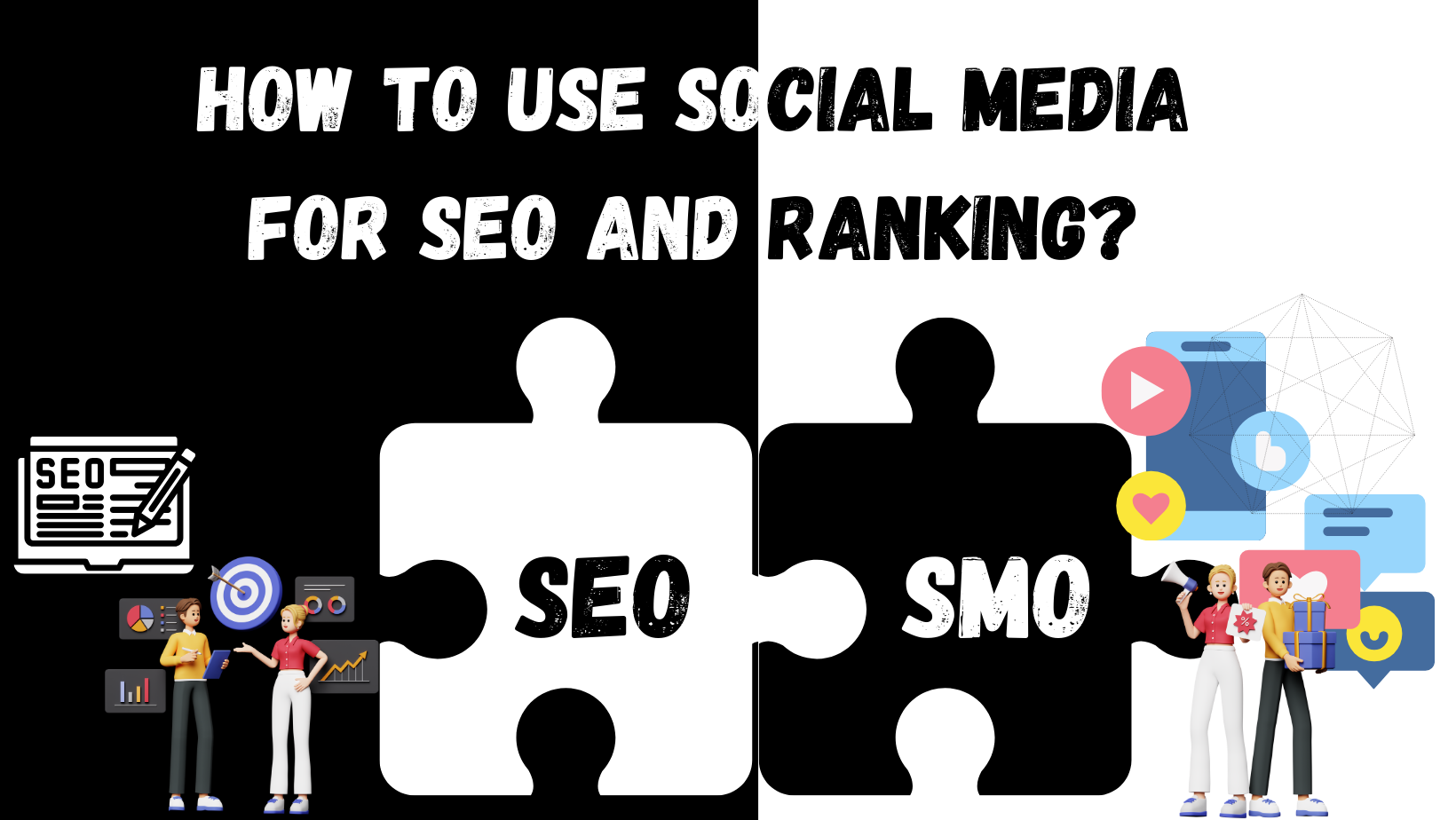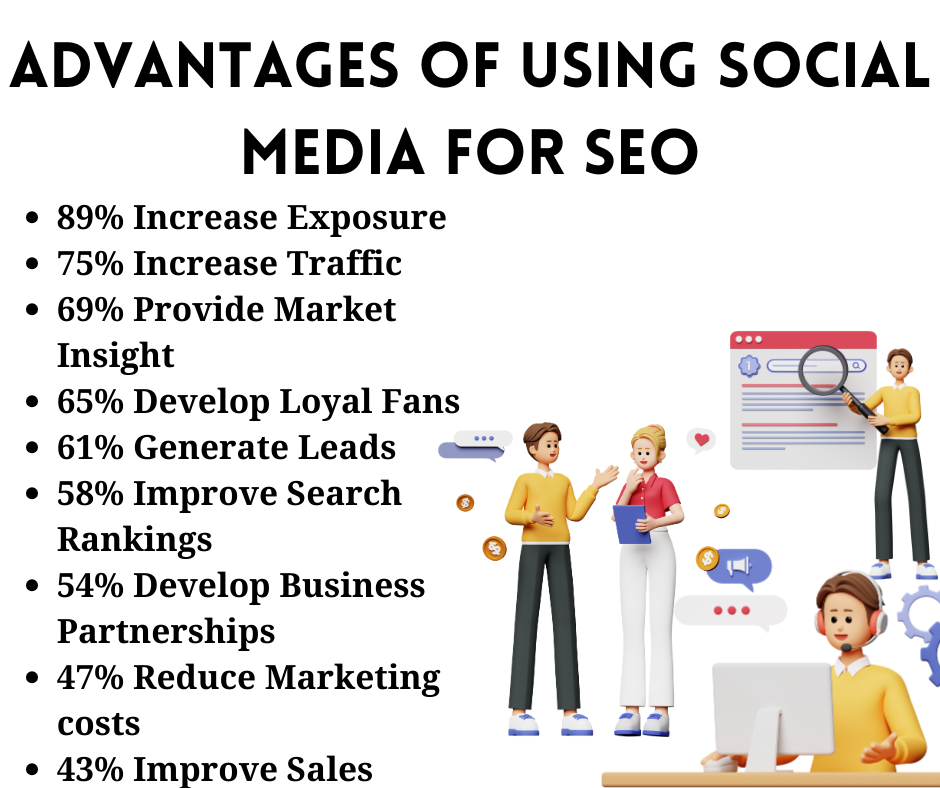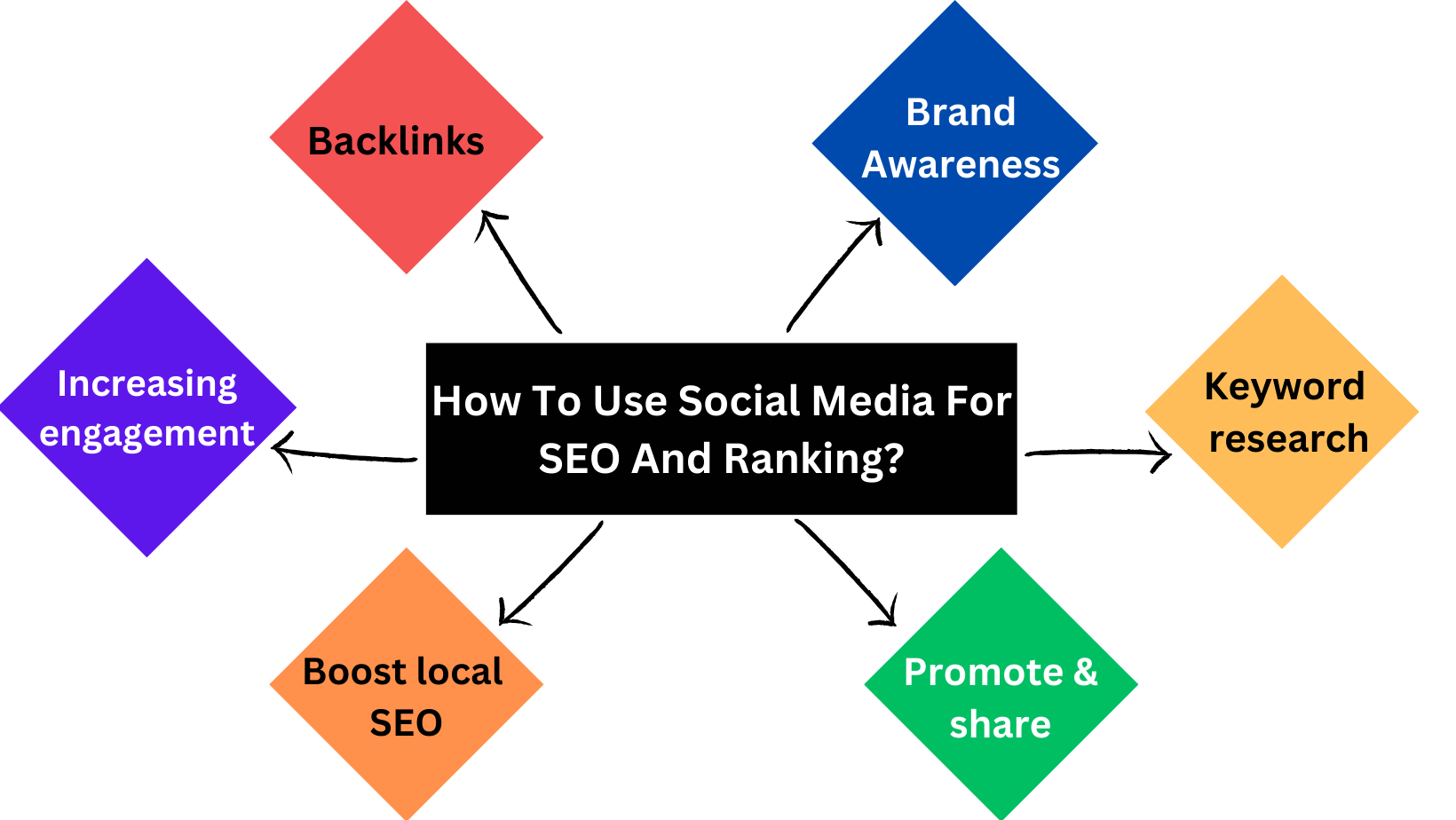Social media is all about building relationships and engaging with audiences. SEO is about attracting audiences by using specific keywords and search intent analyses. Social media and SEO are two widely distinct topics. However, social media management and SEO complement each other.
Let’s explore the relationship between social media and SEO, and how using social media can improve your website’s ranking.

Page Contents:
Why Is Social Media Important For SEO?
The end goals of social media and SEO are the same. They both aim to get more traffic for the brand. When we combine them we can get amazing results. Social media does not directly affect the rankings.
It increases brand awareness by sharing links. This helps your brand to get more exposure. As more people start knowing about your brand, the search visibility and organic search ranking also increase.

You can create social proofs through social media metrics and signals. You can earn backlinks from the content that performs well on social media. Furthermore, you can get insights from the trends the audience is looking for.
Through social media, your content is distributed extensively and cost-effectively. Hence you can drive in more organic traffic by using social media to boost your SEO.
How To Use Social Media For SEO And Ranking?
Using social media as an SEO-boosting element is a brilliant move. As you have thought of it that means you are already ahead of many of your competitors. Let me help you with some tips and tricks for using Social Media for SEO and ranking:
1. Promote and share
The best way to attract your audience is to make powerful content and promote and share it on your social media accounts. Be consistent and share relevant content regularly. As many sources from other platforms come to your site, Google starts recognizing you as an important source. This will increase your SERP rankings.
2. Keyword research
Keyword research is important for Social media SEO as well. Proper keyword research will guide you in creating content. Include keywords in your post. Use them smartly while adding captions or hashtags.
This will trigger search engines to show your social media content on special slots like featured images and videos. Search engines want relevancy and if they find it on your social media handles you will get higher rankings.

3. Brand Awareness
Social media takes this task to the next level. Creating brand awareness with social media can boost your SEO and rankings. Use hashtags and keywords to get your post and profile seen by a wider audience.
Request your happy customers to review and post the related videos or pictures and tag your business. Create a brand hashtag as your signature style of posting content. Brand awareness will attract more traffic.
4. Backlinks
If you are creating high-quality content and focusing on building more contacts then there are high chances of getting backlinks. The website links you share on social media profiles and tags are called social media referrals.
However proper exposure will help you get backlinks. Use top influencers of your industry as a backlink earning magnet. For example, on your YouTube channel post videos explaining various elements of your industry. This will attract different content creators to add your video explanation to their content.
5. Increasing engagement
Your social media interactions cannot change your SERP ranking. However, you can improve them by increasing engagement on your website through social media. You can offer incentives to get your followers to interact with your page.
Create interactive posts such as asking questions or taking polls etc. Judging the interaction you can make out how your content is performing on the internet. You can take surveys to better understand the public demands for your products and services. This will help you to create a more user-friendly website or products.
6. Boost local SEO
Social media profiles can help you boost your local SEO. Local SEO is important for every business that has an outlet. Social profiles are another place where you can provide your address other than Google’s business profile.
Target the local audience by using geotags. You can provide some offers or discounts if customers visit through social media. Connect with local influencers, groups, etc. This local exposure will help you boost the overall SEO.
Top Social Media Platforms That Can Help For SEO
When you are integrating social media with SEO strategy you should know how to use different social media platforms for your SEO and rankings. Here are we to help you to understand and use different platforms for SEO:
1. YouTube
YouTube is the second largest search engine in the world with over 1 billion active users and over 4 billion videos watched daily. It is the easiest and most cost-effective platform for attracting traffic and getting conversions.

The basic step for starting with YouTube is keyword research. Find the primary, secondary, and longtail keywords. Use these in your videos, captions, hashtags, and video descriptions. As the views grow, brand visibility increases and results in high conversion rates.
2. Instagram
Instagram is also the most used platform. Trending reels and posts can steal the market very easily. In addition to this, you can add your business address and target the local audience. You can directly interact with your customers. Create an attractive profile with an easy-to-find-to-find username.

Smartly place your keywords in the form of hashtags and captions. Post polling, questions, etc. to stay in touch with your customers. make your profile easy to approach.
3. Facebook
Facebook is one of the first launched social media platforms. There are over 3 billion active Facebook users. So Facebook is always at the top of the trends. Optimizing your Facebook profile will help you rapidly increase your outreach.

Unlike Google ads, Facebook ads are more creative and flexible. They are cheaper than Google ads. Furthermore, you can reach a wider audience irrespective of their general searches. Customize your page’s URL and username. Sprinkle keywords all over your profile.
Add a proper about section with accurate contact information. Add call-to-action buttons leading to your website. Be consistent and post content regularly. Optimize featured images and interact with your audience.
4. Quora
Quora is a unique social media site with features of social media and question-and-answer forums. Apart from generating leads, you can use Quora for research. You will get an ocean of new ideas and topics with the keywords. So Quora can also be a topic-generation source.

It provides a wide range of information and insights for almost every topic. A business profile at Quora will help you to explain more about your company’s products and services.
Take part in relevant discussions and showcase your expertise on the relevant topics. Establish trust and credibility with potential customers. This will increase your brand awareness.
5. LinkedIn
LinkedIn is the world’s largest professional network on the internet. If you are a B2B content marketer or service provider then LinkedIn is the place for you. You can connect to a wide range of professionals and convert them easily.

An optimized business profile with customized URLs, attractive headings, clear call-to-action, and a descriptive about section will make you stand out. You will be able to attract genuine customers.